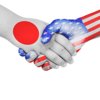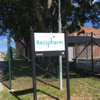Fritextsökning
Artiklar per år
Innehållstyper
-

Bayer has cut 1,500 roles – so far
German chemical and pharmaceutical group Bayer cut more than 1,500 roles in the first quarter alone– and most of them were management positions.
-

Total pipeline of pharmaceutical companies reaches a record high – 22,921 medicines are currently being developed
Despite the difficult economic times, pharmaceutical companies have never developed as many new drugs as now.
-

Carl Borrebaeck – professor and serial entrepreneur with a taste for speed
Award-winning cancer researcher, the founder of many listed companies, and constantly in the academic and commercial spotlight for decades. However, Carl Borrebaeck, Professor of Immunotechnology at Lund, is not yet satisfied. “We have a new, potentially super exciting project in the pipeline,” he says.
-

Forskaren in Hagastaden now inagurated
The real estate company Vectura's life science center in Hagastaden, Forskaren, is now inaugurated. The opening was attended by people from the industry, politicians and royalty.
-

Flicka föddes döv – fick hörsel efter genterapi
En ettårig brittisk flicka med medfödd dövhet kan nu höra tack vare genterapi.
-

Forskaren i Hagastaden nu invigd
Fastighetsföretaget Vecturas life science-center i Hagastaden, Forskaren, är nu invigd. Vid invigningen närvarade både folk från branschen, politiker och kungligheter.
-

Astra Zeneca's Covid-19 vaccine Vaxzevria is being withdrawn worldwide
AstraZeneca initiates a worldwide withdrawal of its Covid vaccine Vaxzevria. The measure is taken just months after the company admitted the vaccine can cause a rare and dangerous side effect, but AstraZeneca claims that the decision is purely commercial.
-

Japanese pharma to buy US drugmaker for $2.4 bln
Japanese Ono Pharmaceutical buys the American cancer drug developer Deciphera Pharmaceuticals in one of the largest acquisitions in the industry so far this year.
-

Astra Zenecas covidvaccin Vaxzevria dras in världen över
Astra Zeneca drar tillbaka sitt covidvaccin Vaxzevria över hela världen. Nyligen ska bolaget ha medgett att vaccinet kan ge vissa farliga biverkningar, men Astra Zeneca hävdar att enbart kommersiella skäl ligger bakom beslutet.
-

Ancient DNA provides new insights – “The immune system lost its job”
Ancient bone remains from our ancestors have provided new insights into the prevalence of multiple sclerosis. By looking back in time, researchers can provide a possible explanation for why the disease is more prevalent in northern Europe.
-

Forskningscenter stoppas på grund av brister – ”Väldigt allvarligt”
Forskning som bedrivs utan tillstånd. Bristande kvalitetssäkring. Personuppgifter som hanteras felaktigt. Kritiken mot arbetet på Center for Bionics and Pain Research (CBPR) i Göteborg är så allvarlig att forskningsplattformen nu läggs på is.
-

Uppgift: Sanofi planerar avknoppning av sina receptfria läkemedel
Den franska läkemedelsjätten Sanofi uppges ha bett ett antal banker att pitcha för att delta i att hantera företagets planerade avknoppning av sin OTC-verksamhet, enligt källor till Bloomberg News.
-

KI’s freezer fiasco investigated: A chain of failures
A chain of combined technical and organisational shortcomings caused the freezer breakdown at the Karolinska Institute during the Christmas holidays, destroying more than 47,000 samples. This was the conclusion of an internal investigation.
-

List: The coolest names in biotech
Hairy beasts, volcanic material and space strolling stand out on a US list of the best biotech company names, and on a list of the coolest names for pharmaceuticals, a Swedish, or at least Swedish-British, drug came out on top.
-

Nocebo – the evil twin that makes you feel worse
The placebo effect is well known in healthcare, but not so its opposite: nocebo. “The effect is small, but it can have major repercussions,” says Uppsala researcher Charlotte Blease, co-author of a book on the phenomenon.
-

Nocebo – den onda tvillingen som får dig att må sämre
Placeboeffekten är väl känd inom vården – men det gäller inte dess motsats: nocebo. "Det är en liten effekt, men den kan få stora återverkningar", säger Uppsalaforskaren Charlotte Blease, medförfattare till en bok om fenomenet.
-

The Covid pandemic accelerated the development of cancer vaccine
The Covid pandemic gave a major boost to the vaccine field. The Danish biotech company Expres2ion Biotechnologies, which is developing a vaccine against breast cancer, testifies to this.
-

Study: Popular diabetes treatment is not associated with thyroid cancer
Concerns raised about an association between GLP-1 analogues, used to treat diabetes and obesity, and an increased risk of thyroid cancer are not supported by an extensive Scandinavian study.
-

Assignment: Facilitate the retention of foreign researchers
A newly appointed public inquiry is to develop measures to make attracting and retaining foreign doctoral students and researchers in Sweden easier.
-

Beta-blockers are often given unnecessarily, a study finds – “This will affect future practice”
Patients who have suffered a minor heart attack do not benefit from beta-blockers, according to a major new study that may change guidelines for cardiac care.
-

Recipharm divests five Swedish plants
Swedish contract manufacturer Recipharm is selling its facilities in Solna, Strängnäs, Höganäs, Karlskoga and Uppsala OTC Development to US private equity company Blue Wolf Capital Partners.
-

Settlement of cancer allegations against blockbuster drug
French pharmaceutical company Sanofi has reached a principal agreement in the US on around 4,000 of the cases in which its now withdrawn blockbuster heartburn drug Zantac allegedly had caused cancer.
-

”En väldigt uttalad AI-ångest i samhället idag”
AI kommer mer eller mindre bli en självklarhet på framtidens vårdavdelningar. Det menar Max Gordon, läkaren och AI-experten som forskar på nya applikationer vid Danderyds sjukhus.
-

Radioactive tracer to measure effect of drug towards Crohn’s disease
A radioactive tracer developed by Astra Zeneca and the Karolinska Institutet may play a major role for patients with Crohn's disease. That is the belief of Maria Belvisi at AstraZeneca.
